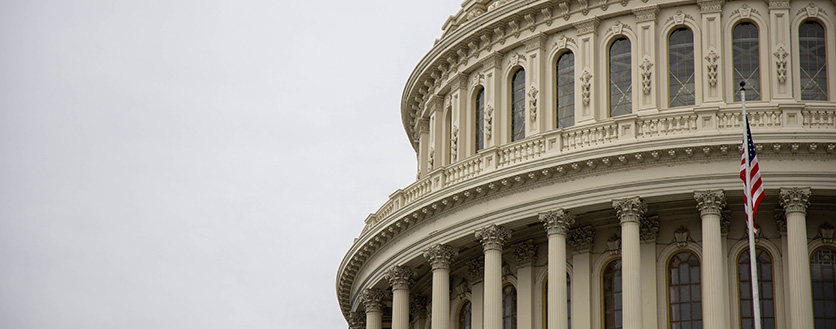Bipartisanship in Congress and Partisanship in the United States

Overview
Featured Expert(s)
Laurel Harbridge-Yong

IPR political scientist Laurel Harbridge-Yong explores a range of questions surrounding partisan conflict and the difficulty of reaching bipartisan agreement and legislative compromises in American politics. Her research spans projects on Congress, state legislatures, and the mass public.
James Druckman

IPR political scientist James Druckman explores the causes and consequences of political polarization in the United States. This includes studies looking at how to measure polarization, and its impact on political norms and attitudes about COVID-19.
Research Roundup
Quantifying the Power of Bipartisan Coalitions
May 2023
Despite arguments that Congress is dominated by partisan interests, a study by IPR political scientist Laurel Harbridge-Yong and her colleagues find that legislators who bring in co-sponsors from both sides of the aisle are more effective lawmakers. The researchers analyzed more than 40 years of congressional data to determine whether effective legislators more frequently adopt a bipartisan or partisan approach to reaching their policy goals.
Correcting Misperceptions of Members of the Opposite Party Decreases American Legislators’ Support for Undemocratic Practices
April 2023
New research suggests that when state legislators learn that the views of voters from the other party are less extreme than they anticipated, they are less likely to endorse antidemocratic actions. The research, conducted by IPR political scientist James Druckman and IPR graduate RA Suji Kang, involved a survey experiment with 534 state legislators from both parties. Druckman and his colleagues find that the average legislator is actually less hostile toward the other party than the general public.
(Mis)estimating Affective Polarization
April 2022
Affective polarization—the tendency of ordinary partisans to dislike and distrust those from the other party—is a defining feature of contemporary American politics. The reality, however, is that these individuals are the exception rather than the norm. Research by IPR political scientist James Druckman shows that when partisans learn that reality, partisan animus falls sharply, and that partisans do not have much animus toward the typical member of the other party.
Why Do Legislators Reject ‘Half Loaf’ Compromises?
April 2020
In their book Rejecting Compromise: Legislators' Fear of Primary Voters (Cambridge University Press, 2020), IPR political scientist Laurel Harbridge-Yong and her colleagues reveal that instead of finding common ground, policymakers might vote “no” even when a policy moves closer to their ideal policy than what currently exists. In other words, they reject the idea that “a half loaf is better than none.”
Bipartisanship and Public Opinion
January 2020
How the public responds to legislative gridlock is one of the most discussed consequences of partisan conflict. A study by IPR political scientist Laurel Harbridge-Yong finds that while Americans generally prefer Congress to compromise instead of miring itself in gridlock, their commitment to avoiding gridlock hinges on the issue and which party is seen as winning.